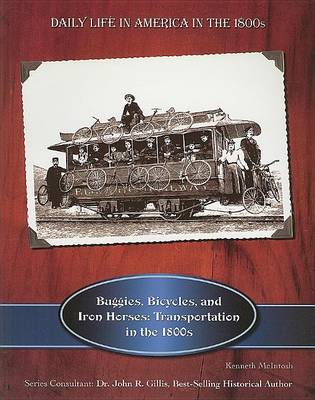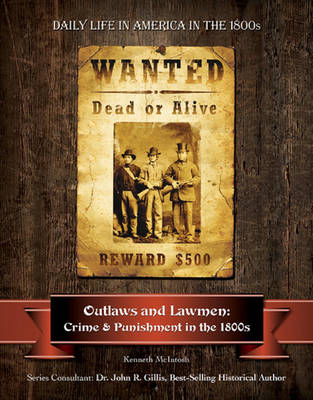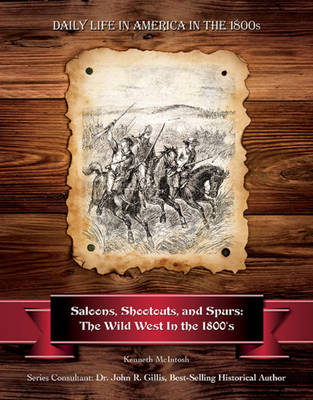Daily Life in America in the 1800s
4 total works
In today's world, where we routinely zip down the highway at 70 miles per hour and we can fly coast-to-coast in a matter of hours, it is hard to imagine the revolution in transportation that took place in the 1800s. From a world where most people rarely traveled faster than their legs could carry them or much beyond their home towns, the 1800s witnessed an amazing and rapid development of technology, improvements in infrastructure, and a national will to conquer the vast distances of a growing country. Through the work of inventors, individual entrepreneurs, and municipalities, Americans found new opportunities for traveling conveniently from place to place within their communities, and a frontier nation was unified by rail, by road, and by a sense of national identity. This is the story of nineteenth-century America on the move!
Founded on the principles of religious freedom, America in the 1800s was fertile ground for the expansion of religious movements and all kinds of experiments in spiritual matters. Americans in the 1800s took their religion very seriously. Away from the authority of established churches, the American frontier from upstate New York to the wilds of the Utah territory was a hotbed of new, radical religion based on a personal experience of salvation, direct revelation, and enthusiastic, highly emotional gatherings at camp meetings. At the forefront of the movement to abolish slavery and women's rights, idealistic men and women in the more established Protestant churches heard a new social gospel from an educated and progressive clergy. Meanwhile, large numbers of Catholic immigrants and Jews from Central and Eastern Europe established their own religious institutions in a new land. The religious history of America in the 1800s is rich and diverse and highly influential in the social and political evolution of our country.
American society in the 1800s had a rough edge to it. In a nation made up of people of diverse backgrounds and heritage, social controls needed to be strict and enforceable. The extreme economic inequality of America's cities and the wide-open moral code of the frontier led to a culture of crime and violence that still plagues our country. During the 1800s, professional police forces were established in cities, towns, and territories across the continent. On the frontier, "justice" was often swift and severe, with "hanging judges" making their reputations as representatives of the law in a lawless land. Long prison sentences in miserable conditions were the rule for criminals, and many a prisoner might have preferred the option of a quick execution. Before the reform of the legal system-which is an ongoing process-there was definitely a separate law, and a separate standard of penalties, for the rich and for the poor. The evolution of a humane penal system and a fairer protection of all citizens under the law is an important contribution of 1800s America to the modern world.
Life on the American frontier of the 1800s is the stuff of American myth and legend. It was here in the wide-open spaces of the West that the rugged individualism of the American character was refined: in the strong but silent cowboy, the saloon girl with a heart of gold, and the sod-busting pioneer. Faced with the incredible challenges of taming a wilderness, wresting the territory from the Native peoples, and dealing with the hardships of pioneer life, Americans were offered one of the richest opportunities in the history of human kind-the agricultural and mineral resources of a new land. The settling of this land is the story of America, a story of violence, wasted resources, and genocide, as well as heroism, freedom, and incredible opportunity. The Wild West of the 1800s remains for Americans a land of hopes and dreams.



